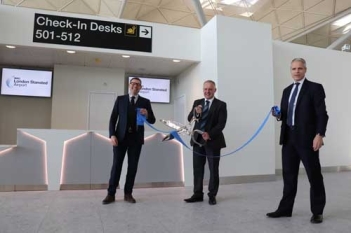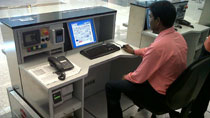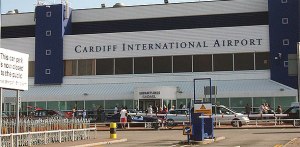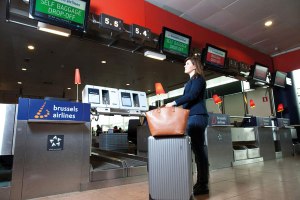 As airports around the world appear to be placing more and more importance on passenger experience and satisfaction, it is interesting to read that the latest Aviation Consumer Survey results from the CAA show that there is a clear drop in just that. But where are passengers less satisfied?
As airports around the world appear to be placing more and more importance on passenger experience and satisfaction, it is interesting to read that the latest Aviation Consumer Survey results from the CAA show that there is a clear drop in just that. But where are passengers less satisfied?
This, the fifth wave of the UK Aviation Consumer Survey, investigates the current behaviour and attitudes of flight passengers to air travel. The survey looks at every aspect of the passenger journey, from arrival at the originating airport to arrival at the destination airport.
3,500 consumers took part in this survey, selected from a cross-section of UK citizens aged 18+, nationally representative of the population.
The results are used by the Civil Aviation Authority to ascertain the most current and rising aviation issues according to consumers, and to assist in decision-making, regulatory requirements, policy and strategic positioning to improve systems and services.
What to the latest results highlight about passenger satisfaction?
The latest results show that satisfaction amongst flight travellers has been dropping consistently over a two-year period (2016-18). The decreases are slight, but significant, with 90% in the first quarter survey of 2016 to 83% in 2018. However, the decreases in passenger satisfaction are not happening on the ground.
Systems and technologies are streamlining airports of all sizes all over the world, and this is paying off in terms of passenger satisfaction. The reduction in queuing and lengthy security screening processing times have both contributed. Airports in particular have been showing an increasing interest in improving passenger experience, and the latest in self-service technologies have placed greater control of the passenger journey directly into the hands of flight travellers.
The greatest dissatisfactions are happening in the air, during flights and during problematic times, when around half of respondents are worried that any complaints they do have, may be falling on deaf ears.
Speaking about the recent drop in satisfaction, the CAA Director, Tim Johnson said, ‘Delays and disruption can be caused by a range of different factors. Some of these are within the control of airlines, and some are not. Whatever the cause, these delays can be frustrating for passengers. We expect airlines to always provide prompt and accurate information and if passengers are entitled to further care and compensation, this should be provided without delay.’
The in-flight experience is making passengers less satisfied, according to survey results. Over two years, the number has fallen from 81% (2016) to 77% (2018), and while still a reasonable satisfaction measurement, it shows a significant drop since 2016.
Where are the least satisfied flight passengers?
An interesting highlight of the survey is that there are regional changes. It seems that flight passengers are more satisfied the further north of the UK they are.
East Midlands travellers are the least happy, at just 76%, with Wales close behind at 78%, where passengers in the north east are 89% happy, on average.
It is widely felt that airports are working hard towards making the ground experience as seamless as possible to improve passenger experience and satisfaction. Infrastructural changes, master systems integration and implementation of the latest innovations in self-service kiosks, biometrics and common use airport systems are all helping to improve not only satisfaction, but also airport operational management.
It is now time for airlines to follow suit and take passenger experience and satisfaction to another level.
 Flight passengers using
Flight passengers using 




